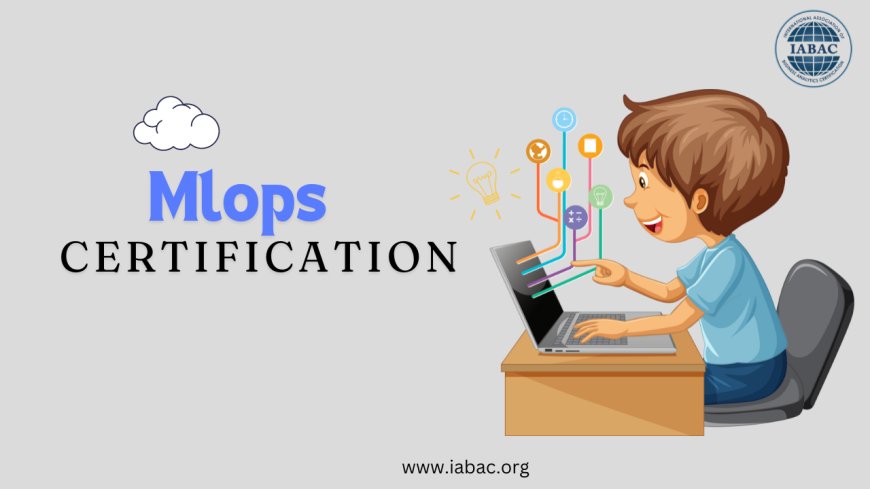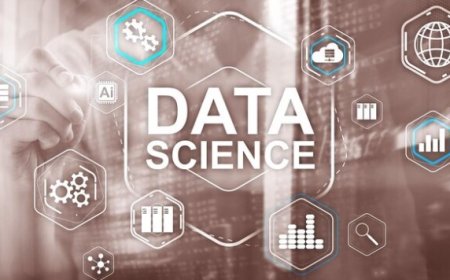The Roadmap to Success in MLOps Certification
Explore the path to mastering MLOps with our comprehensive certification guide. Elevate your skills in machine learning operations and boost your career.

Machine Learning Operations (MLOps) is a set of practices that helps connect machine learning development with production systems, ensuring machine learning models can be deployed efficiently and reliably. As machine learning grows more integral to business, MLOps has become important for managing the lifecycle of these models from development through deployment and maintenance. This involves automating the machine learning workflows, monitoring model performance rigorously, and facilitating collaboration across data science, development, and IT teams. By implementing MLOps, companies aim to streamline the process of updating and scaling machine learning models, making it easier to adapt to new data and insights, and ensuring models remain effective and secure in a production environment. The need for consistency, efficiency, and faster integration of AI capabilities into business applications drives the adoption of MLOps.
Growth in Demand for MLOps Professionals
The exponential growth in machine learning applications across various industries has significantly increased the demand for skilled professionals in Machine Learning Operations (MLOps). As more organizations leverage machine learning to drive innovation and enhance operational efficiencies, the need for expertise in managing the full lifecycle of these models becomes crucial. This includes tasks from developing models to deploying and maintaining them in production environments.
Professionals skilled in MLOps are vital because they ensure that machine learning systems are scalable, repeatable, and reliably integrated into business processes. The expertise required spans data engineering, model deployment, monitoring, and the ability to collaborate with IT and software development teams. This makes MLOps a critical and rapidly growing field within tech industries seeking to maximize the benefits of their machine learning investments.
Bridging MLOps Skill and Practice Gaps
The skill gap and understanding of best practices in Machine Learning Operations (MLOps) among professionals is a notable challenge as the field evolves. Organizations recognize that successful implementation of machine learning systems goes beyond algorithm development, requiring a combination of software engineering, data science, and IT operations skills—areas that traditionally have little overlap.
This multidisciplinary nature of MLOps often leads to a skills gap, as outlined below:
-
Diverse Skill Requirements: Professionals might be highly skilled in one area, such as data science, but lack expertise in others like deployment and system maintenance. This can hinder the effective integration of machine learning models into production environments.
-
Evolution of Best Practices: MLOps is a rapidly developing field. Best practices are still being formulated, necessitating continual learning and adaptation. This dynamic environment can be challenging for professionals entrenched in specific roles.
-
Training and Education: There is a pressing need for education and cross-training to equip professionals with the necessary skills across these diverse areas. Organizations often need help finding well-versed professionals or adequately training their current workforce to meet the demands of MLOps.
How can one get certified in MLOps and what are the benefits?
Achieving certification in MLOps is beneficial because it provides formal recognition of your skills and knowledge in this emerging field, making you more attractive to employers and better equipped to handle the complexities of machine learning in production environments. Here’s how you can pursue an MLOps certification:
-
Research Certifications: Start by identifying which certifications are most respected in the industry. Look for those offered by reputable organizations or platforms known for their AI and machine learning training programs.
-
Understand Prerequisites: Check if there are any prerequisites for the certification. Some may require prior knowledge in machine learning, data science, or software engineering.
-
Enroll in a Training Program: Many certifications require completing a specific training program that covers MLOps fundamentals, tools, and best practices. These programs often include hands-on projects and assignments.
-
Study and Practice: Dedicate time to study and apply MLOps concepts through practical exercises and simulations. Engaging with community forums and study groups can also enhance your learning.
-
Pass the Certification Exam: After preparation, you’ll need to pass an exam that tests your knowledge and skills in MLOps. Some certifications might also require project submissions to demonstrate practical competence.
-
Continuing Education: Technology changes rapidly, especially in fields like machine learning. Keep your skills current by engaging in continuous learning and renewing your certification as required.
Certification in MLOps not only validates your expertise but also helps you stay competitive and effective in implementing and managing AI systems. This can lead to better job opportunities and career growth in the tech industry.
MLOps Essentials and Practical Experience Value
Achieving expertise in MLOps involves understanding key concepts and tools, along with gaining practical experience:
-
Essential MLOps Concepts and Tools
-
Version Control Systems: Tools like Git help manage code changes and collaboration.
-
Continuous Integration and Deployment (CI/CD): Automates the testing and deployment of machine learning models.
-
Monitoring and Logging: Tools like Prometheus and ELK Stack monitor the performance of models in production.
-
Model Serving and Orchestration: Tools like TensorFlow Serving and Kubernetes manage the deployment and scaling of machine learning models.
-
Importance of Practical Experience:
-
Projects: Engaging in real-world projects allows for the application of MLOps tools and practices in practical scenarios, enhancing understanding and skill.
-
Internships: Internships provide exposure to industry-specific applications of MLOps, offering invaluable insights and networking opportunities that are beneficial for career growth.
Both theoretical knowledge and practical application are crucial for mastering MLOps, paving the way for successful careers in machine learning and data science.
Connecting with MLOps Experts for Learning & Trends
Engaging with MLOps communities and professionals is essential for continuous learning and staying abreast of industry trends. These communities provide a platform for individuals to connect, share knowledge, and exchange insights on various aspects of machine learning operations. Individuals can tap into a wealth of collective wisdom by actively participating in these communities, such as online forums, social media groups, or local meetups.
-
Hearing Different Views: You get to hear from people with different experiences and backgrounds, which can give you new ideas and ways of doing things.
-
Learning from Real Stories: Experts share their stories, telling you what worked and what didn't in their projects. This helps you learn from their mistakes and successes.
-
Keeping Up with Tools: MLOps tools are always changing and improving. Being part of these communities helps you stay updated on the latest tools and tricks.
-
Learning Together: There are often classes and workshops where you can learn new skills or dive deeper into topics you're interested in.
-
Making Friends: You can meet people who are working on similar things as you. This can lead to new friendships and even collaborations on projects.
-
Finding Helpful Resources: These communities often share useful articles, videos, and guides that can help you learn more about MLOps at your own pace.
the roadmap outlined serves as a structured guide toward achieving MLOps certification success. By following its steps, learners can systematically acquire the necessary knowledge and skills required for certification. Emphasizing the significance of strategic planning and confidence, readers are encouraged to embark on their learning journey with purpose and determination. With a clear roadmap in hand, learners can approach their studies methodically, building a solid foundation in MLOps principles and practices. By committing to continuous learning and a focused approach, individuals can increase their chances of success in obtaining MLOps certification and advancing their careers in the field of machine learning operations.










































